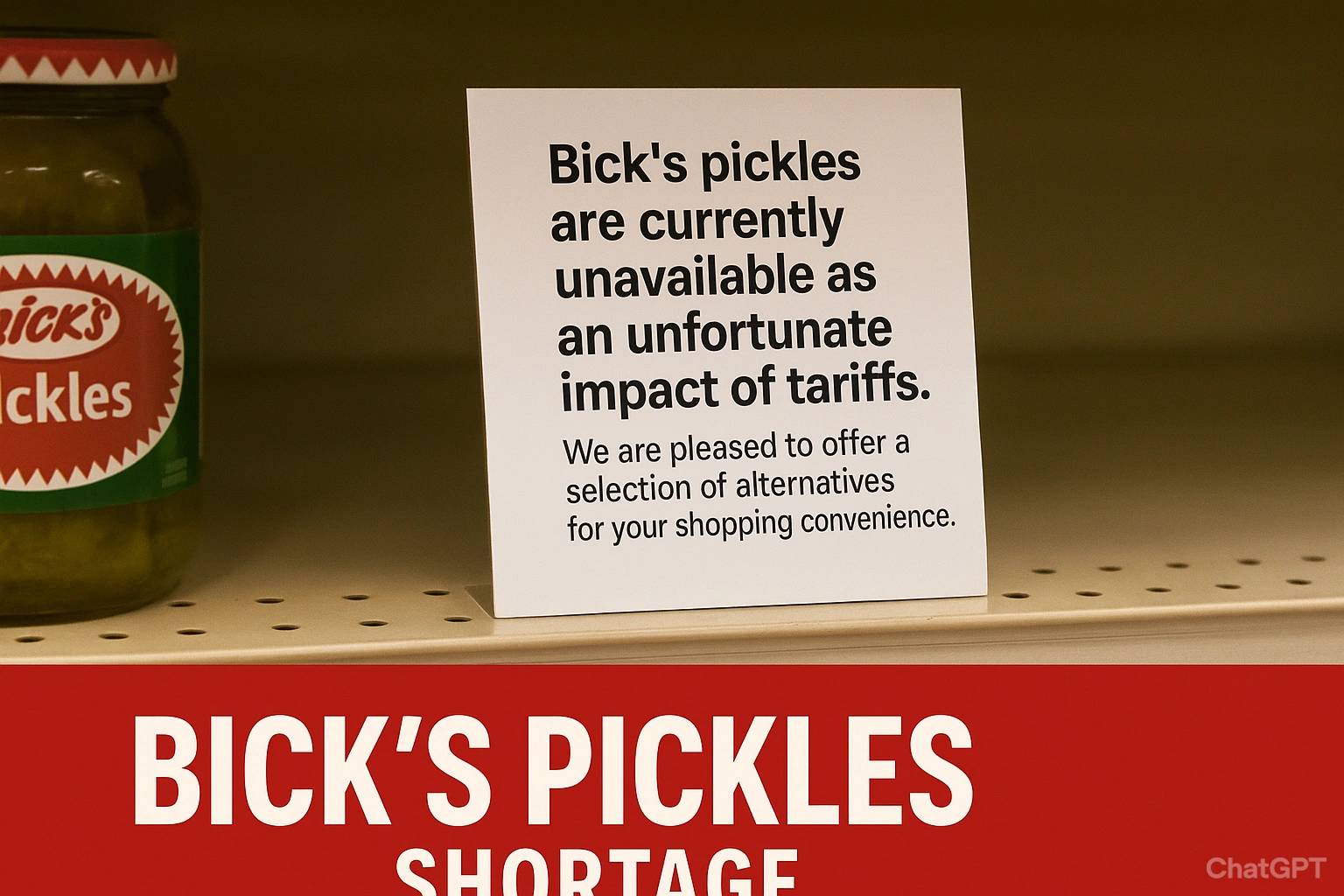Why Bick’s Pickles Are Missing From Store Shelves in Canada
Bick’s, a beloved pickle brand made exclusively for the Canadian market, is now missing from some grocery stores due to the ongoing Canada–U.S. trade war. The shortage stems from a 25% tariff on cucumbers and gherkins imposed by Canada in response to U.S. tariffs.
At Safeway locations in Edmonton, signs inform shoppers that Bick’s pickles are unavailable due to tariffs, offering alternative brands instead. Parent company Sobeys has yet to comment on the situation.
Read Also: Bick’s Pickles Disappear from Some Canadian Stores Amid Canada-U.S. Tariff Dispute
How the Tariff Dispute Started
In March, the United States imposed tariffs on Canadian goods. In retaliation, Canada introduced counter-tariffs, including the 25% duty on cucumbers. For Bick’s, which relies heavily on Canadian-grown cucumbers, this has caused a major pricing issue.
Steven Oakland, CEO of TreeHouse Foods Inc. (Bick’s parent company), explained that the food industry operates on thin margins, making a 25% cost increase difficult for retailers to absorb. As a result, some have stopped stocking Bick’s altogether.
[Canada’s Counter-Tariffs on U.S. Goods]
The Canada–U.S. Supply Chain Connection
Although production of Bick’s pickles moved to Green Bay, Wisconsin, in 2014, the company still purchases 11 million pounds of cucumbers from Ontario farmers each year, along with jar lids from an Ontario supplier. The tariff dispute, however, has reduced Canadian purchases, with sales dropping 25% in the past three months.
[Read the full CBC News report]
Impact on Canadian Farmers and Consumers
While many Canadians are choosing to “buy Canadian” during trade tensions, economists warn that this can backfire. If shoppers avoid Bick’s, the company buys fewer Canadian cucumbers, ultimately hurting local farmers.
Consumers, meanwhile, face fewer brand choices and higher prices. Food economist Kwaku Afesorgbor from the University of Guelph notes that the cost of tariffs often falls on customers, either through price hikes or reduced product availability.
The Future of Bick’s in Canada
Industry experts like John Cox from Pickle Packers International argue for duty-free trade of food products under the Canada–U.S.–Mexico Agreement (CUSMA). Without tariff relief, the long-term profitability of Bick’s in Canada is at risk.
For pickle lovers like Edmonton resident Crystal Porcher, the shortage is frustrating but won’t stop them from enjoying their favorite snack — even if it means paying more or switching brands.
Conclusion
The Bick’s pickle shortage in Canada is a prime example of how international trade disputes can affect everyday products. From farmers to retailers to loyal customers, the 25% cucumber tariff has created a ripple effect across the supply chain. Unless trade negotiations ease tensions, Canadian pickle fans may need to get used to fewer choices on grocery store shelves.
Karunakar Mohanta is the creator of OdiaYojana.in, a leading blog that provides the latest updates on government schemes, scholarships, and official notifications in Odia. With a mission to simplify complex government information, he helps Odia citizens stay informed and empowered. Follow him to stay updated on PM Yojanas, state benefits, and important deadlines.

1 thought on “Bick’s Pickles Face Shortages in Canada Due to Tariff Dispute”